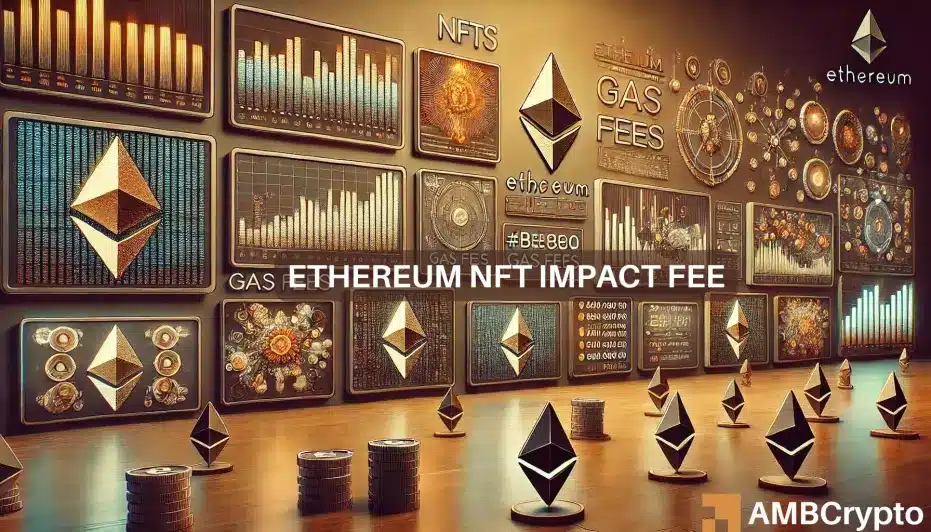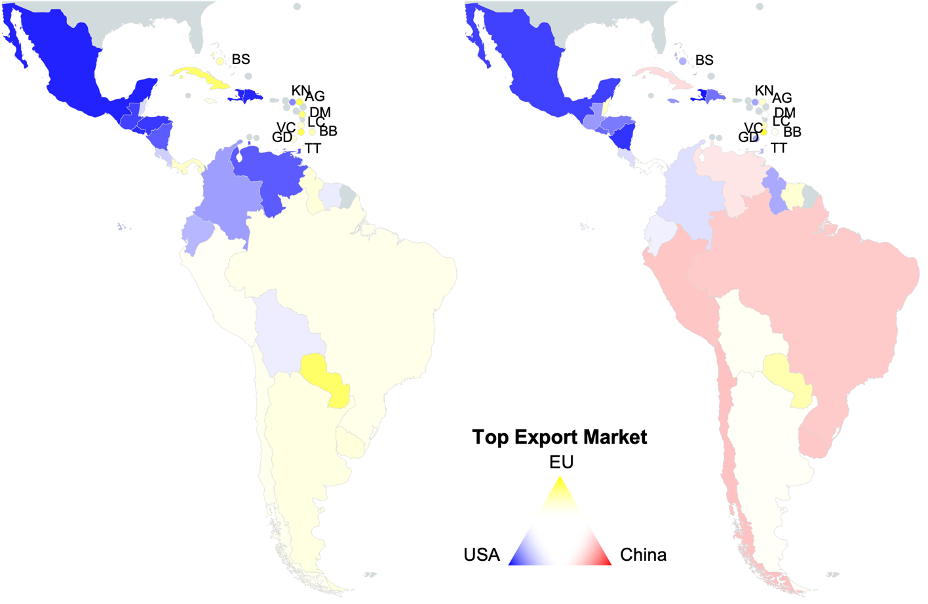Is The Great Decoupling Inevitable? Exploring Key Factors

Table of Contents
Geopolitical Tensions and the Great Decoupling
Escalating geopolitical rivalry between major global powers, particularly the US and China, is a primary driver of decoupling. Trade wars, sanctions, and concerns over national security are forcing nations to reconsider their reliance on integrated global supply chains. This new era of great power competition resembles aspects of the Cold War, leading some analysts to label it a "new Cold War," albeit one fought primarily through economic and technological means rather than direct military confrontation.
- Increased tariffs and trade restrictions between the US and China: The trade war initiated in 2018, characterized by significant tariffs imposed on billions of dollars worth of goods, exemplifies the growing economic friction.
- Concerns over intellectual property theft and technological espionage: Accusations of intellectual property theft and concerns over the transfer of sensitive technologies have fueled distrust and contributed to protectionist measures.
- Growing competition for global influence and dominance: The competition extends beyond economics, encompassing geopolitical influence in regions like Africa and the Indo-Pacific. This struggle for dominance contributes to the fracturing of global cooperation.
- Diversification of supply chains to reduce reliance on specific countries: Nations and businesses are actively seeking to reduce their vulnerability by diversifying their sourcing and manufacturing locations. This involves strategies like nearshoring and friend-shoring.
Technological Competition and the Pursuit of Technological Independence
The race for technological supremacy is another crucial factor contributing to decoupling. Nations are increasingly investing in domestic technological capabilities to reduce dependence on foreign technologies and prevent technological vulnerabilities. This pursuit of technological independence is particularly evident in strategically important sectors.
- Investments in domestic semiconductor manufacturing: The global chip shortage highlighted the vulnerabilities of relying on concentrated production in a few countries, leading to significant investments in domestic chip manufacturing capabilities.
- Development of national AI strategies: Nations are competing to become leaders in artificial intelligence, recognizing its transformative potential and strategic implications. This competition fuels investment in domestic research and development.
- Competition in 5G and other critical technologies: The deployment of 5G networks and the development of other crucial technologies have become arenas for geopolitical competition, with nations seeking to secure their technological dominance.
- Concerns over data security and digital sovereignty: Concerns over data security and the potential for foreign governments to access sensitive information are driving efforts to establish digital sovereignty and control over domestic data flows. This includes efforts to establish independent digital infrastructure.
Economic Diversification and Supply Chain Resilience
Businesses are actively seeking to diversify their supply chains to mitigate risks associated with geopolitical instability and disruptions. This involves strategies like nearshoring (moving production to nearby countries), reshoring (returning production to the home country), and regionalization of production. The goal is to build more resilient and less vulnerable supply chains.
- Shifting manufacturing from China to Southeast Asia or other regions: Many companies are relocating or expanding production in countries such as Vietnam, India, and Mexico to reduce their reliance on China.
- Investing in domestic production capabilities: Countries are incentivizing domestic manufacturing through subsidies and other policies to bolster their own industries and reduce reliance on foreign suppliers.
- Building more resilient and diversified supply chains: Businesses are adopting strategies that focus on multiple sourcing options, strategic inventory management, and robust risk assessment to mitigate supply chain disruptions.
- Focus on regional economic integration: Regional trade agreements and economic blocs are gaining importance as countries seek to strengthen economic ties within their geographic proximity.
The Role of International Organizations and Multilateralism
The role of international organizations like the WTO, World Bank, and IMF in mitigating the effects of decoupling and promoting global cooperation remains crucial. However, the effectiveness of these institutions is challenged by rising nationalism and protectionist tendencies. The ability of these organizations to foster international cooperation and address the challenges of economic decoupling will be critical in shaping the future of the global economy.
Conclusion
The "Great Decoupling" is a complex and multifaceted process driven by a confluence of geopolitical tensions, technological competition, and economic considerations. While complete decoupling might be unlikely in the short term, significant shifts in global economic relationships are already underway. The degree of decoupling will depend on the evolving geopolitical landscape, the success of national technological strategies, and the effectiveness of international cooperation. Understanding the nuances of the Great Decoupling is crucial for businesses, policymakers, and individuals alike. Stay informed on the latest developments in global economics and the evolving implications of the Great Decoupling to navigate this period of significant economic transformation successfully. Further research into the factors contributing to economic decoupling is essential for informed decision-making.

Featured Posts
-
 Andor Season 2 What To Remember Before Watching
May 08, 2025
Andor Season 2 What To Remember Before Watching
May 08, 2025 -
 Analysis 10 Spike In Ethereum Address Activity In Just Two Days
May 08, 2025
Analysis 10 Spike In Ethereum Address Activity In Just Two Days
May 08, 2025 -
 Choosing Reliable Crypto News A Guide To Avoiding Misinformation
May 08, 2025
Choosing Reliable Crypto News A Guide To Avoiding Misinformation
May 08, 2025 -
 Pnjab Pwlys Myn Ays Pyz Awr Dy Ays Pyz Ke Tbadlwn Ka Aelan
May 08, 2025
Pnjab Pwlys Myn Ays Pyz Awr Dy Ays Pyz Ke Tbadlwn Ka Aelan
May 08, 2025 -
 Shifting Trade Winds Canadas Approach Wins Favor In Washington
May 08, 2025
Shifting Trade Winds Canadas Approach Wins Favor In Washington
May 08, 2025
Latest Posts
-
 Star Wars Andor A Look At Tony Gilroys Creative Vision
May 08, 2025
Star Wars Andor A Look At Tony Gilroys Creative Vision
May 08, 2025 -
 Tony Gilroys Positive Andor Experience A Star Wars Success Story
May 08, 2025
Tony Gilroys Positive Andor Experience A Star Wars Success Story
May 08, 2025 -
 Andor Showrunner Tony Gilroy Reflects On Production
May 08, 2025
Andor Showrunner Tony Gilroy Reflects On Production
May 08, 2025 -
 Andor Season 2 Your Pre Viewing Guide
May 08, 2025
Andor Season 2 Your Pre Viewing Guide
May 08, 2025 -
 Everything You Need To Know Before Andor Season 2 Airs
May 08, 2025
Everything You Need To Know Before Andor Season 2 Airs
May 08, 2025
